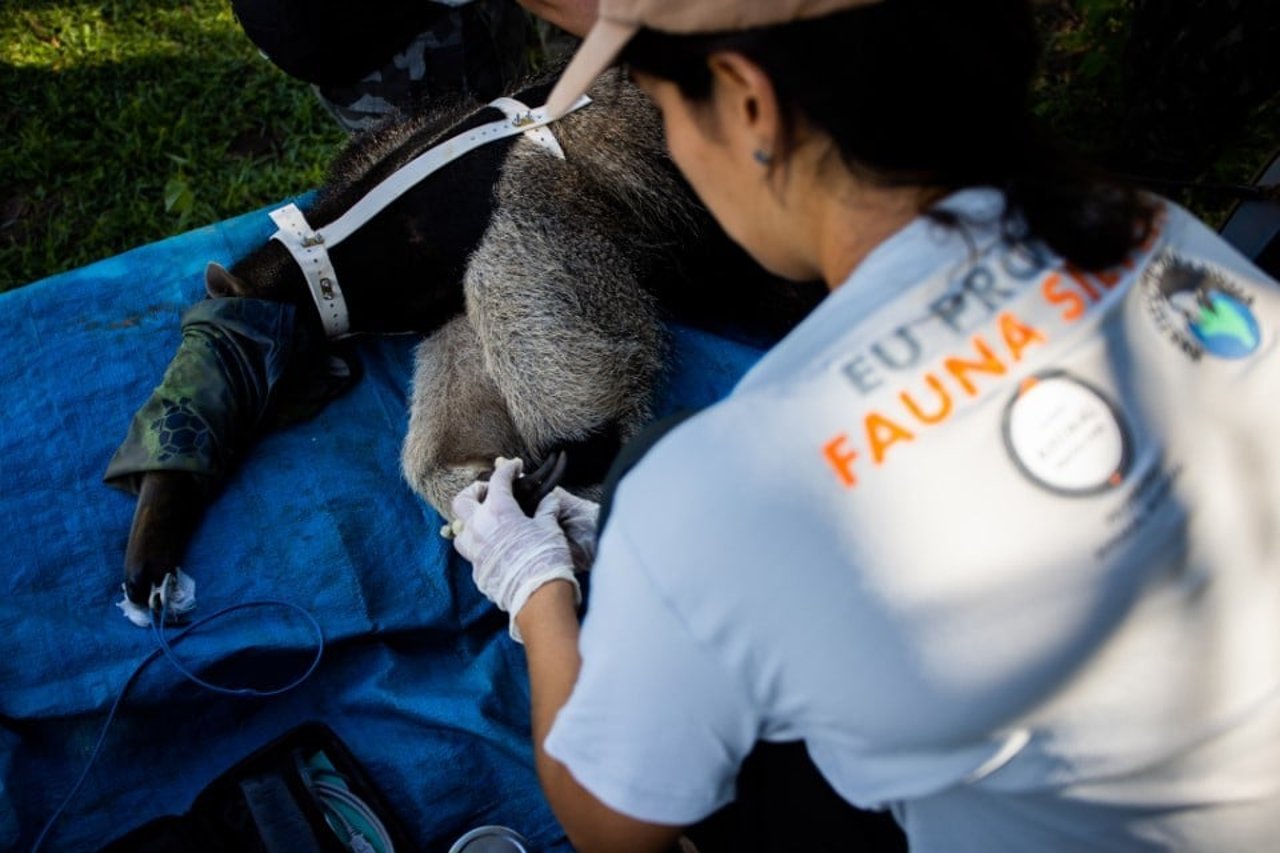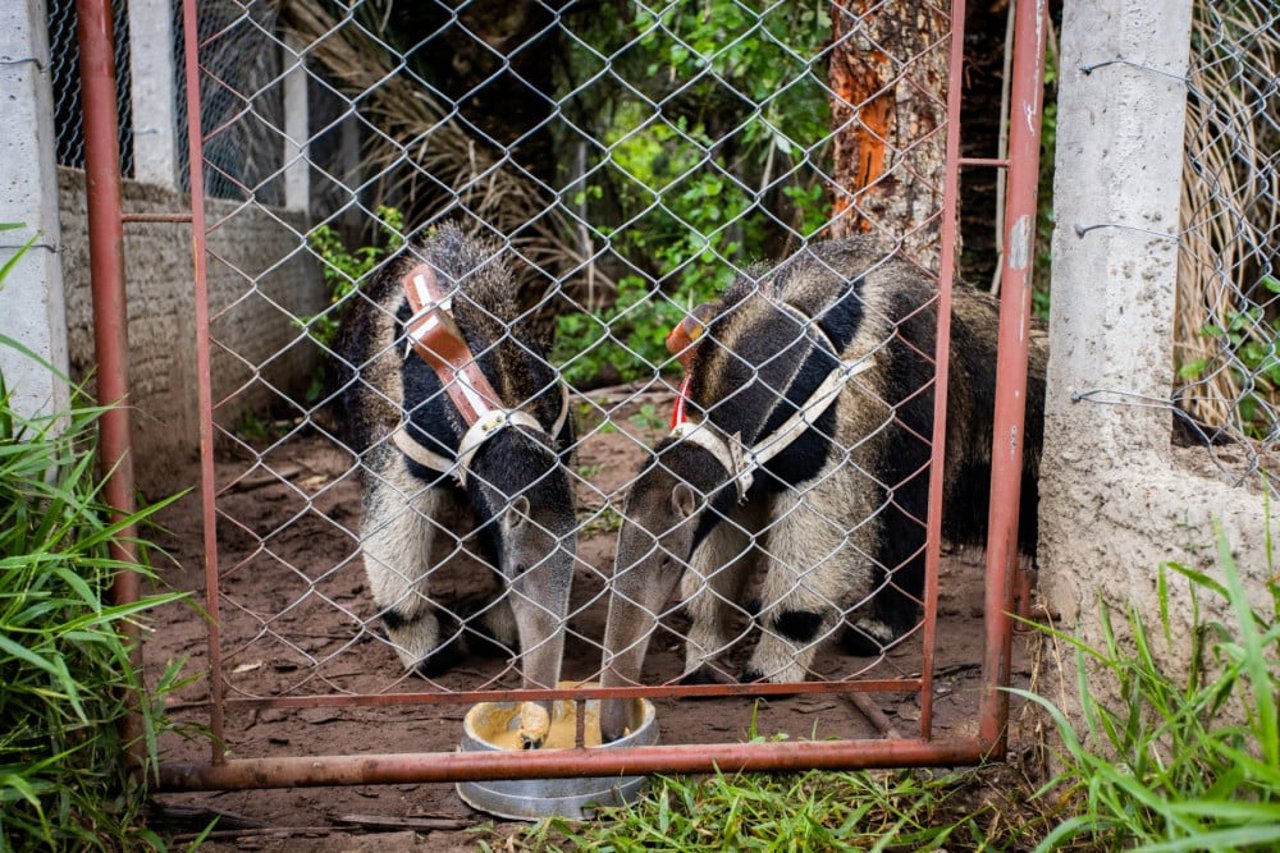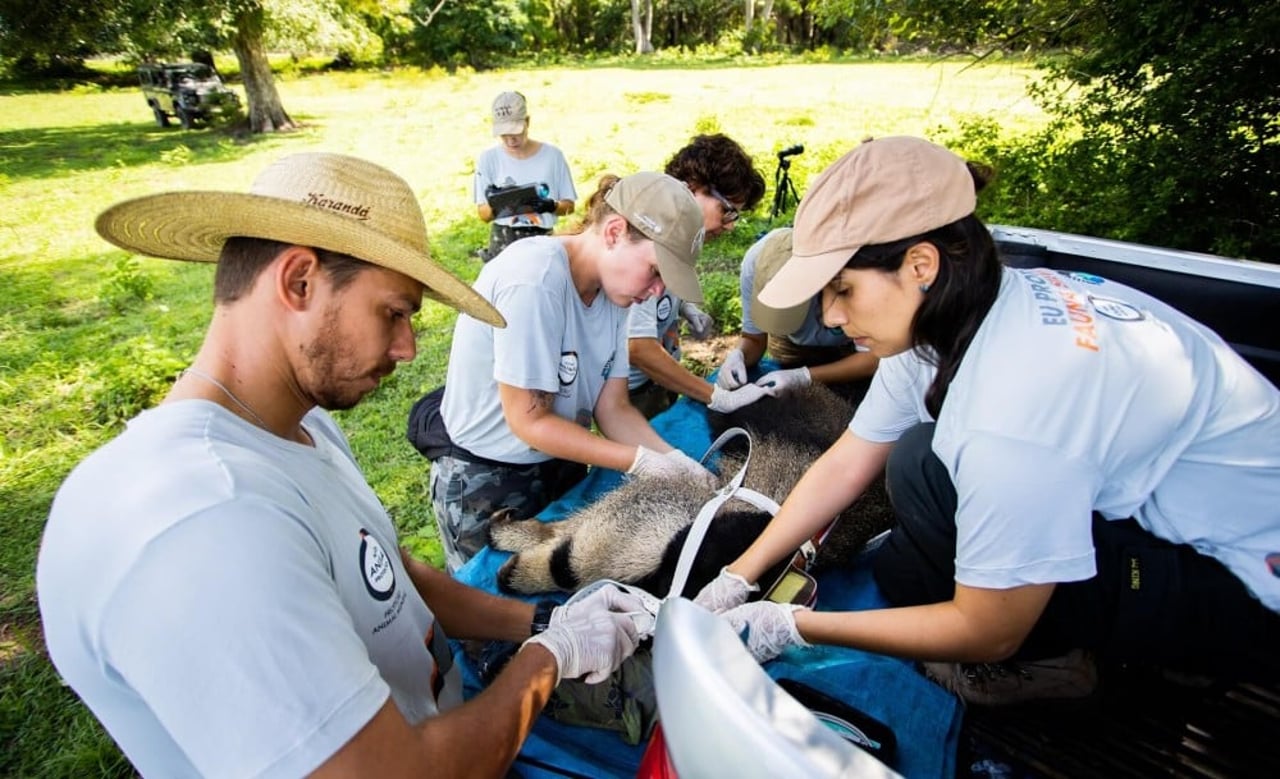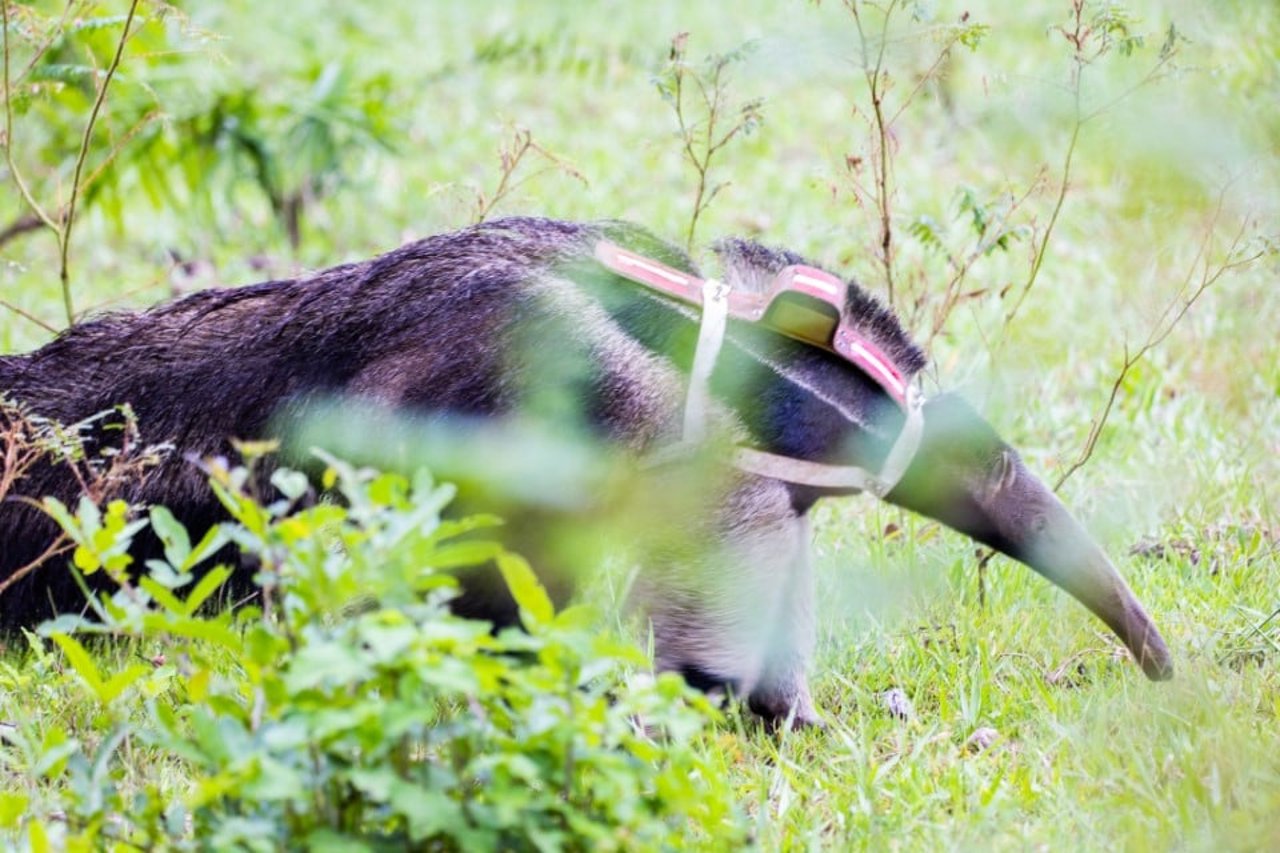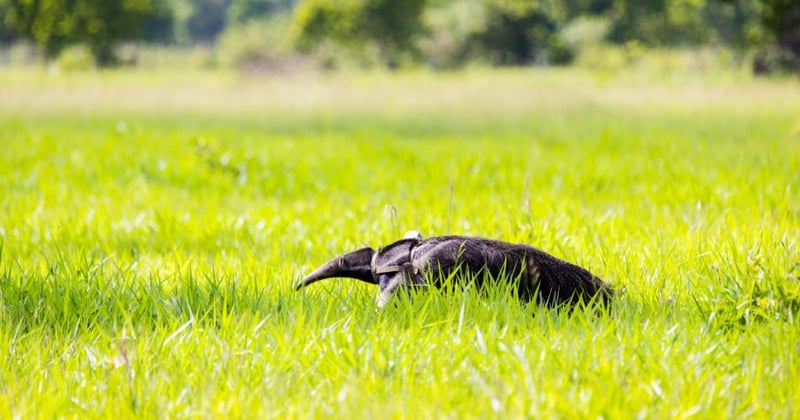
The anteater duo was rescued and rehabilitated by our team in Brazil after forest fires destroyed their homes.
For nearly two years, World Animal Protection has been in partnership with Brazil’s Institute Tamanduá supporting the Orphans of Fire Project, which recovers and rehabilitates giant anteater victims of forest fires in the Southern Pantanal region of Brazil.
After more than a year in rehabilitation as part of our emergency intervention, Cecília and Darlan, two giant anteaters, have been successfully released into the wild! Keep reading to hear their incredible story.
Seeking Out Safety
When fleeing from the forest fires, both Cecília and Darlan were found on two dirt roads (with Cecília found next to her mother, who sadly had been involved in a traffic accident and did not survive) and were taken to the Rehabilitation Center of Wild Animals in Campo Grande, Brazil.
Cecília being prepared for her release.
Once safe and secure at the rehabilitation center, the giant anteaters’ unique personalities quickly began to shine. As roommates, the differences in their behaviors soon became obvious, with Darlan initially more fearful and suspicious and Cecília more exploratory and lively. Yet after being introduced to the center’s outdoor enclosure (also known as an ‘immersion’ enclosure), the anteaters surprised their caretakers as the tables turned! Darlan confidently disappeared into the dense vegetation, showing his curious side that no one expected, while Cecília was slightly timid—as soon as she left the enclosure, she came back and then left again.
Ultimately, both anteaters settled in nicely to their temporary outdoor dwelling even while in the presence of each other. They often stayed very close together, and when eating, they engaged in play by trying to put their paws on each other while they ate.
Cecília and Darlan.
Eventually, Cecília became world-famous when she won the Audrey Mealia Award for Unique Personality from World Animal Protection in 2022. Her charismatic, exploratory way earned her 9,000 votes! With the prize of $10,000, she helped the Institute to rent a vehicle and a fixed base for the local team, improving all the logistics of the fieldwork and the anteaters’ eventual release.
Back to the Wild
Once the giant anteaters were in good health, the team prepped for their release back into the wild. Cecília and Darlan were fitted with GPS vests that aided Institute Tamanduá’s monitoring and research. The team used the ‘soft release’ technique, by opening the door of the immersion enclosure and waiting for the moment when the animals felt comfortable to leave.
Equipping the anteaters with GPS vests.
On their first day in the wild, Cecília and Darlan were observed on how they were adapting to their newfound freedom. As it was daytime (and giant anteaters are nocturnal), they were both discovered sleeping, with Darlan a little over a half mile from the enclosure and Cecília further away at nearly two miles. Currently, the anteaters continue to be monitored by the technical team—both are doing well in nature and are showing healthful behaviors. It is expected that Cecília and Darlan will continue to thrive in their new wild lives!
Darlan leaving the enclosure to go explore.
Orphans of Fire
Fire has been widely used in Brazil to deforest native areas for the purpose of expanding agricultural production, especially soy crop production, for use in farmed animal feed. Fires are also caused intentionally by illegal mining activities, the construction of recreational houses in forbidden locations, and inadequate management of organic materials by the dams constructed in the main rivers of the region.
Giant anteaters are particularly susceptible to feeling the cruel impacts of these harmful behaviors. Anteaters are slow animals who sleep hidden during most of the day. When there is a fire outbreak, which tends to spread quickly, these slower animals do not have a strong ability to escape, as the fire reaches high speeds in drier areas. Many deaths may occur in their hiding places and burrows, and when these animals do manage to escape, they may get into accidents on highways—such as Cecília’s mother—or enter urban areas and suffer violence and attacks from other animals.
The giant anteater’s population in Brazil has been reduced by 66% in the last 26 years, and the species is now classified as Vulnerable by the IUCN (International Union for Conservation).
By choosing to eat plant-based foods, you can avoid supporting the factory farming industry that is responsible for deforesting by fire Cecília and Darlan’s natural habitat—and displacing and endangering them (and countless other wild animals) in the process.
